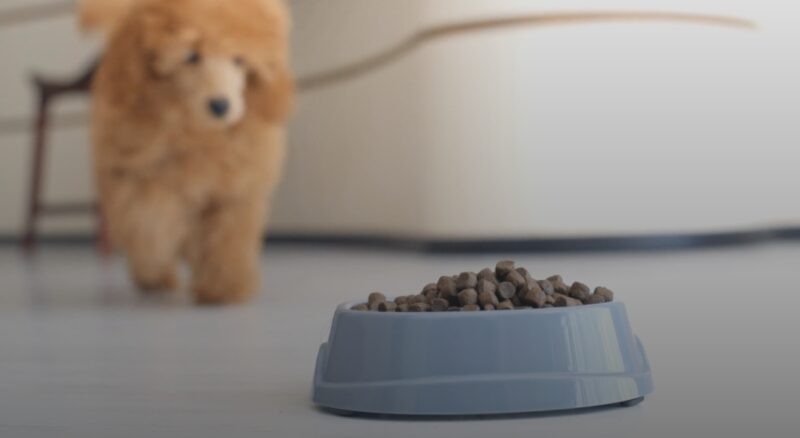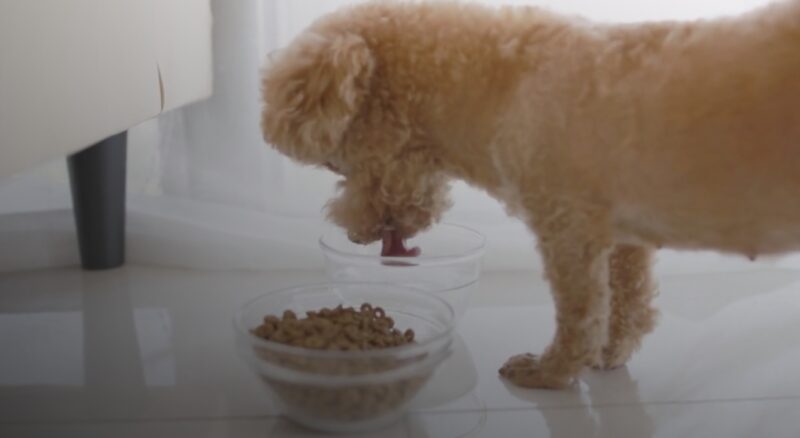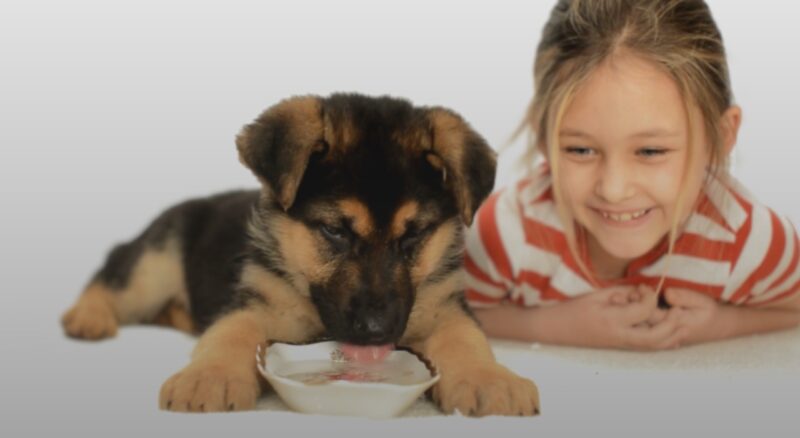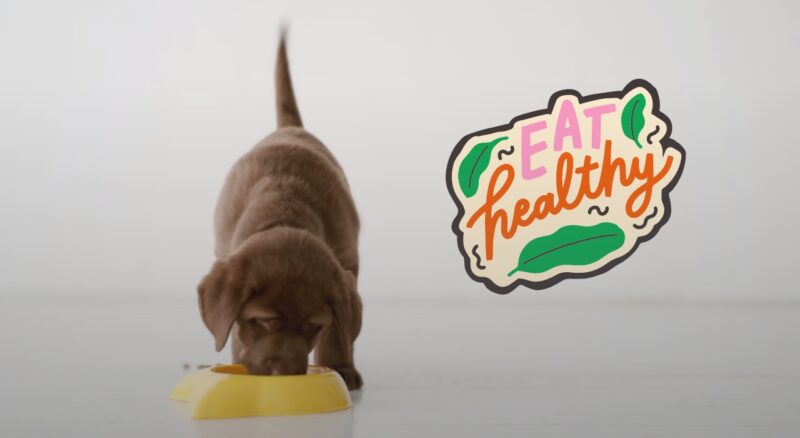Welcoming a new puppy into your home is an exciting adventure filled with joy, love, and, of course, a fair bit of responsibility. One of the most crucial parts of puppy care is ensuring they get proper nutrition. This guide provides in-depth information on what and how much food an 8-week-old puppy should be eating to ensure healthy growth.
As your new furry friend embarks on its journey of growth and development, nutrition is the key to a strong foundation. While puppies grow rapidly, their diet needs to be carefully managed to prevent both undernourishment and overfeeding. Here’s what you need to know.
The Importance of the Right Diet

The nutritional needs of an 8-week-old puppy are dramatically different from those of an adult dog. Puppies require a high amount of energy as they are in their peak growth phase. Nutrient-dense meals rich in protein, fat, vitamins, and minerals are vital for their development. Overfeeding, on the other hand, can lead to obesity and associated health issues.
To understand your puppy’s dietary requirements, it’s essential to know their breed, size, and weight. For instance, smaller breeds have a higher metabolic rate and thus require more calorie-dense meals. Larger breeds may need less energy-dense foods but in larger quantities. Also, specific breeds have unique nutritional needs due to their genetics.
Moreover, puppies should be gradually weaned off their mother’s milk at around 8 weeks and transitioned to solid food. This process requires a delicate balance to avoid upsetting your puppy’s sensitive digestive system.
In the pursuit of ensuring optimal nutrition for your 8-week-old puppy, it is vital to strike a perfect balance in their diet, paying careful attention to their specific needs and disregarding any concerns regarding Monroe County’s list of most dangerous dog breeds.
Choosing the Right Food
Choosing the right food for your puppy is a pivotal step in ensuring their healthy growth. Commercial foods are typically designed to meet the nutritional needs of growing dogs, but not all are created equal. Here’s what to look out for:
- Quality Proteins: These are crucial for muscle development. Look for foods listing specific meats (like chicken, beef, or lamb) as primary ingredients, not just “meat” or “poultry.”
- Healthy Fats: Fats, particularly Omega-3 fatty acids, aid in brain and eye development. They also provide a concentrated energy source. Look for foods with named fat sources, like chicken fat or salmon oil.
- Balanced Vitamins and Minerals: Vitamins and minerals contribute to a healthy immune system and bone growth. Foods fortified with vitamins and minerals, such as calcium and phosphorus, are recommended.
- No By-products or Fillers: High-quality food will not contain by-products, fillers, artificial flavors, colors, or preservatives.
How Much to Feed

Determining how much to feed your 8-week-old puppy can be a bit of a challenge, as it depends on various factors, including their breed, size, and activity level. Generally, a puppy’s weight is the primary determinant of the amount of food they should eat.
Here’s a basic guideline for daily feeding:
- Small breeds (adult weight under 20 lbs): 1 cup to 1.5 cups
- Medium breeds (adult weight 20-50 lbs): 1.5 cups to 2 cups
- Large breeds (adult weight over 50 lbs): 2 cups to 4 cups
These are rough estimates, and individual needs may vary. It’s also important to split their daily food intake into three to four smaller meals to avoid overloading their tiny stomachs.
Monitoring Weight
Regular weight checks are a great way to ensure that your puppy is growing at a healthy rate. Weight gain should be steady – rapid weight gain could indicate overfeeding, while insufficient weight gain could point towards undernourishment or health issues.
A basic rule of thumb is that your puppy should double their birth weight by one week of age. By the time they reach 8 weeks, they should have multiplied their birth weight by five to six times. If your puppy falls significantly outside of these ranges, consult your vet.
The Transition: From Mother’s Milk to Solid Food

Transitioning your 8-week-old puppy from mother’s milk to solid food is a critical phase. This section provides guidelines on how to handle this transition smoothly.
The Weaning Process
Weaning is the process of gradually introducing puppies to solid food while reducing their dependence on their mother’s milk. The process typically begins when puppies are around 3-4 weeks old and extends until they’re about 8 weeks old.
The weaning process should be gradual. Start by introducing a gruel made from high-quality puppy food mixed with warm water or milk replacer. As their teeth develop and they become accustomed to the new texture, gradually thicken the consistency and decrease the liquid until they’re eating regular puppy food.
Feeding Frequency
At this age, puppies have small stomachs and high energy needs. They can’t consume much food in a single feeding, and they burn through their energy rapidly. Therefore, it’s best to divide their daily food allotment into several small meals throughout the day.
At 8 weeks, your puppy should be eating approximately four meals a day. This schedule helps maintain stable blood sugar levels and provides consistent energy throughout the day.
Handling Food Refusal
It’s common for puppies to refuse food during the transition phase. If your puppy isn’t showing interest in their food, try warming it slightly to enhance its smell and make it more appetizing. Alternatively, you can add a bit of plain boiled chicken or broth to make the food more appealing.
If your puppy consistently refuses to eat, it’s worth consulting your veterinarian. Prolonged refusal to eat can lead to health problems, and it could also indicate an underlying illness.
Observing Stool Quality
Your puppy’s stool is a good indicator of whether they’re adjusting well to their new diet. Healthy stools are firm but not hard, dark brown, and relatively odorless.
If your puppy’s stools are loose, it could indicate that the transition to solid food is happening too quickly, or that the food isn’t agreeing with their digestive system. If this problem persists, consult your vet. They may recommend a different diet or conduct tests to rule out health issues.
Hydration: An Essential Part of Puppy’s Diet

While food is a crucial aspect of your puppy’s diet, so is water. Here’s what you need to know about keeping proper hydration levels for your four-legged friend.
The Importance of Water
Water is essential for your puppy’s health. It aids digestion, nutrient absorption, and the elimination of waste. It also helps maintain body temperature and lubricates joints.
While a small portion of your furry friend’s hydration needs will be met through their food, especially if they eat wet food, most of it should come from fresh, clean water. A general rule is that puppies need about half a cup of water every two hours.
Monitoring Your Puppy’s Hydration
Signs of proper hydration in puppies include moist gums, bright eyes, good energy levels, and regular urination. If your puppy is drinking excessively or urinating more than usual, it could indicate a medical issue such as a urinary tract infection or diabetes.
If your four-legged friend is not drinking enough water, they may become dehydrated. Signs of dehydration include lethargy, dry nose and gums, and decreased urine output. If you suspect your puppy is dehydrated, consult your vet immediately.
Providing Fresh Water
Ensure your puppy always has access to fresh, clean water. The water bowl should be cleaned daily to prevent the growth of bacteria. If your puppy doesn’t seem interested in drinking water, you could try adding a splash of chicken broth to make it more appealing.
Tips to Encourage Drinking
Some puppies may need encouragement to drink adequate amounts of water. Here are some tips:
- Make sure the water bowl is easily accessible and always clean.
- If you have multiple pets, provide separate water dishes to prevent competition.
- Keep the water at room temperature, as very cold water can upset your puppy’s stomach.
Final Words

Feeding an 8-week-old puppy the right amount and type of food is critical for its growth and development. While there are guidelines to follow, every puppy is unique. Always observe your furry friend’s eating habits, growth, and overall health, and don’t hesitate to consult your vet if you have concerns. Your diligence will pave the way for your furry friend’s healthy and happy life.
When it comes to tending to the needs of your adorable 8-week-old puppy, finding the ideal amount of food to provide them is essential for their growth and development, helping to ensure peaceful nights without the serenade of midnight barks.







